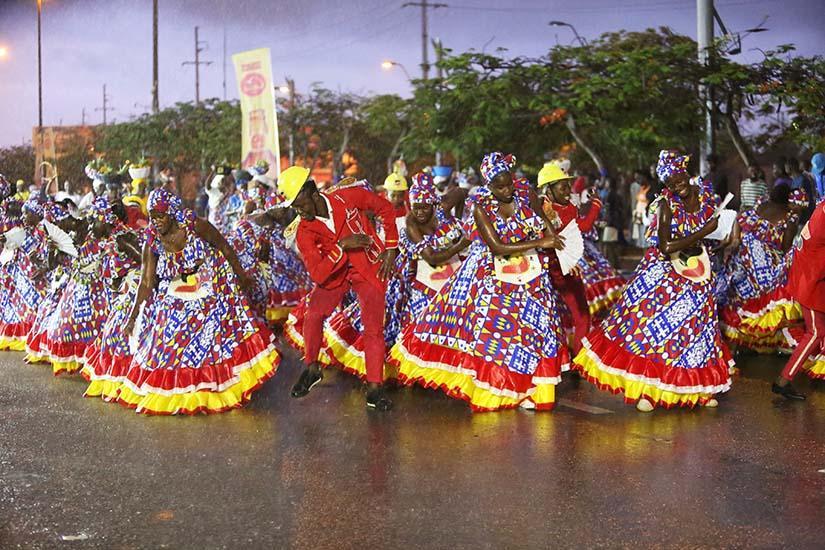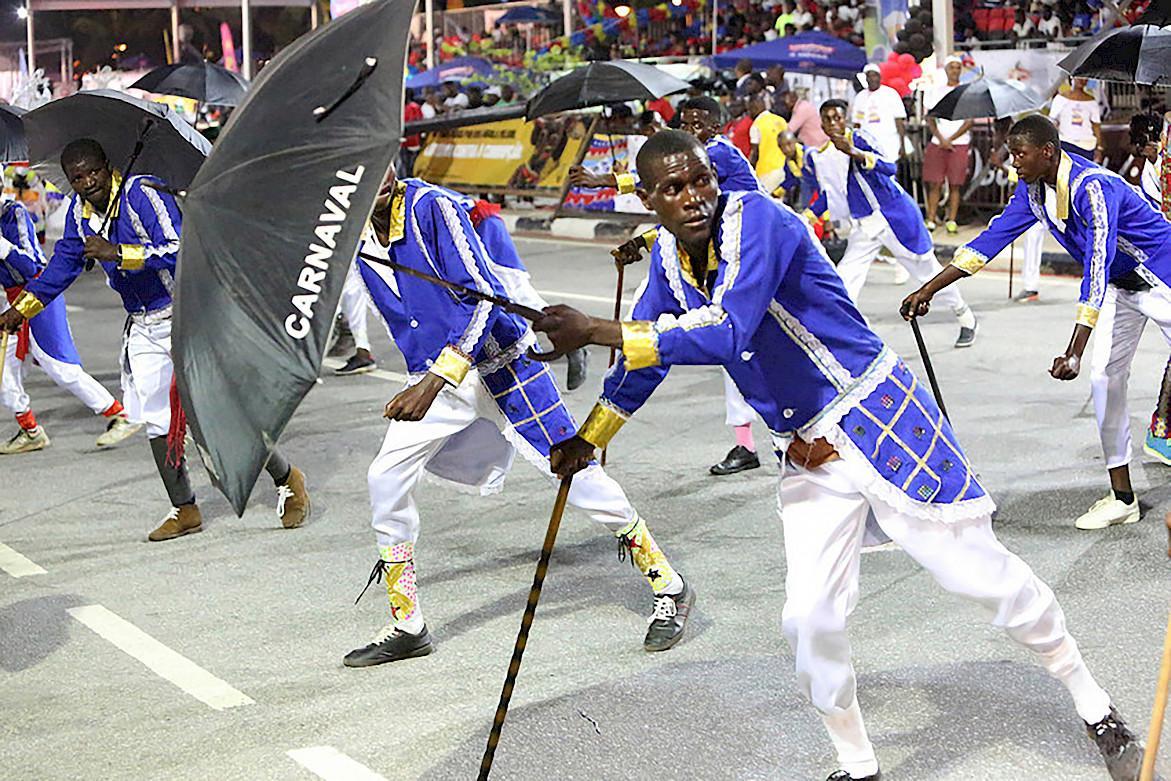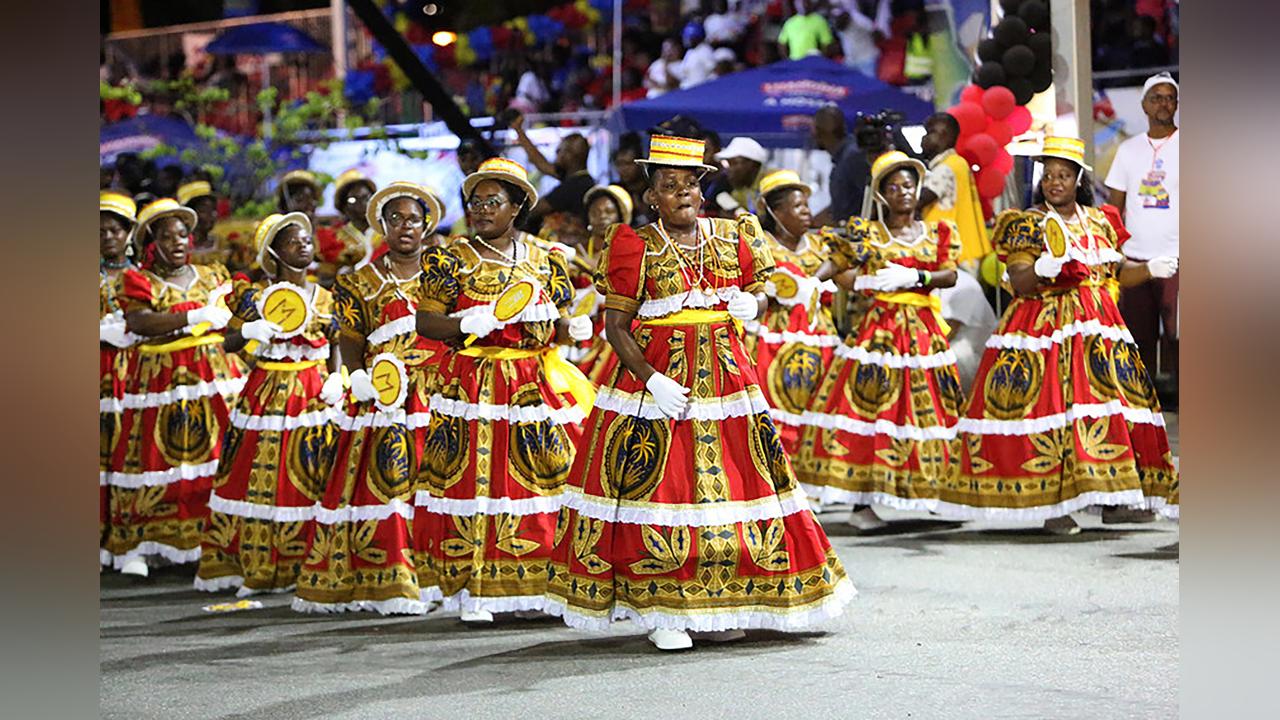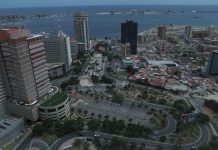Africa-Press – Angola. Resulting from the festivities related to the Portuguese Shrovetide, characterized by large dances, the Carnival of Luanda has undergone several changes over time, but retains the marks of ancestry.
The central act of the Carnaval da Vitória, which took place on March 27, 1978, marked the break with the carnival tradition brought by the Portuguese colonist.
The history of this people’s festival is intrinsically linked to the figure of the first President of Angola, António Agostinho Neto, who, in a speech given in the municipality of Cazenga, called for the celebration of the victories won by the country, thus designating ‘Carnival of Victory’.
Currently, the party has its high point in the parades of floats and dance groups on the Nova Marginal de Luanda.
Dressed in different costumes, sprinkled with bright colors, the carnival groups parade in traditional costumes, drums, cans, reco-reco, marimba and whistles and, to the sound of different musical styles, such as Kazukuta, Dizanda and Semba, shared the conquest of all.
Over the years, the Carnival of Luanda tends to add values that lead it to modernity, with the sound, among other technical aspects, both in the groups and in the parade venue, providing a positive break with the Carnival before danced.
The metamorphosis in the form of dance
According to the elder and counselor of the União Kiela group, Isabel Ventura, who is part of the second generation of the Luanda Carnival, the collective dances predominantly the Semba style, but before that it was Kabrota.
He says that, one day, at the death of one of the oldest (João) in the neighborhood, the men questioned the fact that women only sing in this type of ceremony.
As a result, according to Isabel Ventura, the older ones advised the young women to finish Kabrota and embrace Kiela.
As for the way of dancing, the counselor defends her time, considering that the groups danced better, referring, however, that each time has its own way.

“At that time, our way of dancing was different; in this one, the girls dance in a different way”, she underlines.
The eldest remembers, with nostalgia, the period when Carnival was danced in the streets, when the collectives ‘fought’ in search of the feat.
The parade of the groups took place on Avenida 4 de Fevereiro, where they only represented themselves with flags and drums, without the current floats or other means.
The president and commander of União Kiela, Maravilha dos Santos, who is part of the third generation of Carnival in Luanda, recalls that she started dancing at the age of five.
Regarding the difference between the seasons (second and third), he says that today, in the third generation, the dance item has gained more speed, although groups continue to dance more Semba.
“Before, the groups danced with a slower cadence, but today we decided to speed it up a little more, to be closer to the more youthful rhythm”, he clarifies.
With regard to the music, the commander of Kiela considers that there have been significant changes, since more people sang in Portuguese than in Kimbundu.
In this context, the official regrets that some groups are losing the essence and tradition of Carnival, as many deviate from the standard of national culture.
Regarding the Street Carnival, he declares that his association continues to practice it, but only in the neighborhood (Sambizanga), since its extension to other areas depends on security.
“We are afraid, because certain people try to hit us with stones and bottles”, he says.
He informs that his association not only danced the Street Carnival in Sambizanga, but also in several spots, between Cazenga, Kinaxixi and Prenda, and the party went on until dawn.
The president of the União Kazukuta group, from Sambizanga, David Júnior, who is part of the second generation, advances that there was a difference between the Carnival of the first and second generations, since the first acted in the streets and the collectives had the help of the merchants at the time.
Regarding competitiveness, he considers that it was strong, given that there was no recording of the songs and the groups had to dance to the sound of traditional instruments.
“Currently, we don’t make recordings, which takes away the essence of Carnival”, he laments.

For the group’s coach and lead singer, Pedro Mateus, revelers are currently only aware of Carnival on the Luanda side, whereas in the past, people would wait for the party in the streets, at their doorsteps and balconies.
As for the dance steps, the vocalist declares that they have undergone changes, exemplifying with the fact that the old Kazukuta steps are not currently classified by the jury.
Poly Rocha, one of the most visible faces of the União Recreativo Kilamba group, understands that Shrovetide is, today, seen in a more evolved way, since steps that led to the Carnival that now takes place were burned.
The party, he reinforces, carries with it a great influence of globalization, which he points out as a gain.
“Today, we are in the 21st century and, obviously, many things must change in relation to the Carnival of the 20th century. Now there is more color, more joy, more revelry”, he considers.
Poly Rocha emphasizes that the work must be within what are the concepts of uses and customs of Carnival in Luanda, in particular, and in Angola, in general.
“The habits of our Carnival are still very clear. The gentiles, the court, the bessanganas, the fishermen, the cursing wing, are still found in the groups, striking features of our culture”, he describes.
Poly Rocha, who is part of the third generation, is of the opinion that the lack of support for the groups is a major concern.
The big party of the people is scheduled for Saturday (18), with the parade of children’s groups. Sunday (19) and Monday (20) are reserved for classes B and A, respectively.
The parades take place from 4 pm on the Nova Marginal de Luanda, and on the 21st the Street Carnival will take place.
On the 22nd, the results will be announced and the award ceremony is scheduled for the 25th of February.
For More News And Analysis About Angola Follow Africa-Press






